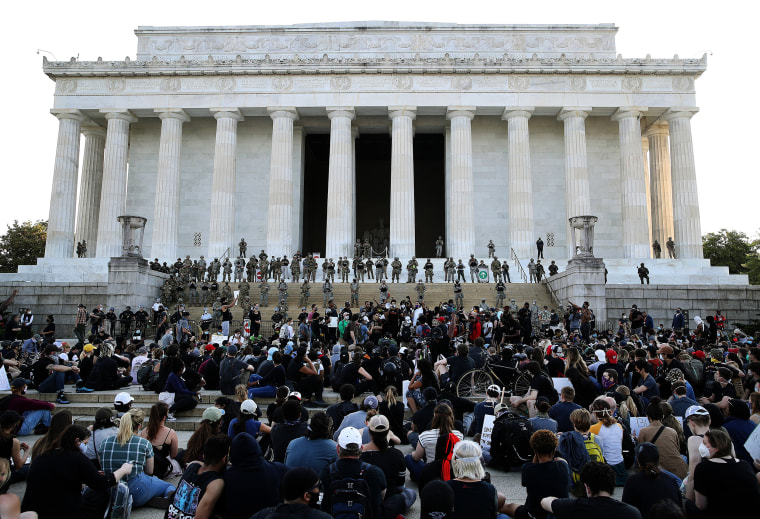Sen. Chris Murphy (D-Conn.) last night announced plans for new legislation that will be worth watching closely. The Connecticut Democrat wrote on Twitter:
"We cannot tolerate an American secret police. I will be introducing legislation to require uniformed federal officers performing any domestic security duties to clearly identify what military branch or agency they represent."
Under normal circumstances, this would probably seem wildly unnecessary. Americans have grown accustomed to seeing law-enforcement personnel in uniforms for many years, and in each instances, they're easily identifiable: we know who those in uniform work for, we can see their name, and in many instances, we can reference a badge number.
The point, of course, is to add a layer of accountability to law enforcement. It also lets the public know who does and does not have legal authority: when law-enforcement personnel are identifiable, we know they're not part of a private security force; they're not militia members playing make-believe; and they're not security guards. These practices simultaneously let other law-enforcement officials know who they are to one another.
And yet, as a Washington Post report noted yesterday, residents of the nation's capital have been confronted this week "with a number of other heavily armed law enforcement officers who share an unexpected characteristic: Neither their affiliation nor their personal identities are discernible."
Several D.C.-area journalists have highlighted the problem, including my MSNBC colleague Garrett Haake, who published a tweet yesterday from outside the White House, where he saw federal law enforcement "of some kind," with personnel who wouldn't identify themselves, and whose "insignias and name plates have been removed."
"The idea that the federal government is putting law enforcement personnel on the line without appropriate designation of agency, name, etc. — that's a direct contradiction of the oversight that they've been providing for many years to local police and demanding in all of their various monitorships and accreditation," former New York City police commissioner William Bratton told the Post.
Bratton added, "If those officers engage in any type of misbehavior during the time that they are there representing the federal government, how are you to identify them? What is the need for anonymity in controlling crowd demonstrations?"
The Post's analysis went on to note, "Such anonymity echoes the way in which enforcers in autocratic regimes have worked to avoid accountability. If you believe that you were unlawfully detained or assaulted by a law enforcement official, you can try to hold them to account.... But how do you hold someone accountable when you don't know who they are or even who they work for?"
Ideally, the need for American lawmakers to consider legislative measures such as the one Chris Murphy is preparing to unveil would never occur. But in 2020, I suspect the Connecticut senator's bill will pick up quite a few co-sponsors.

